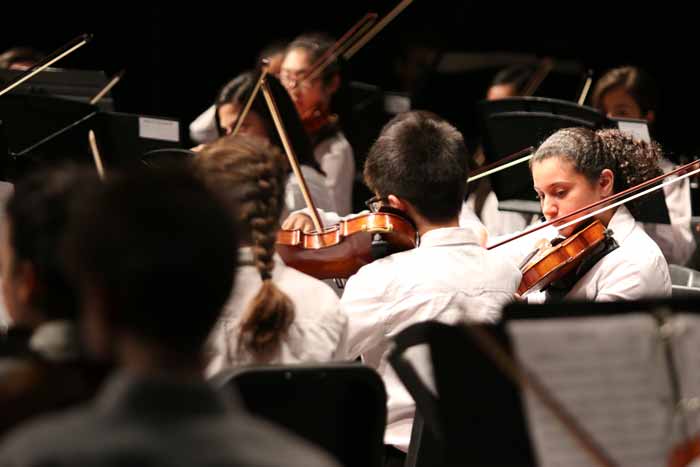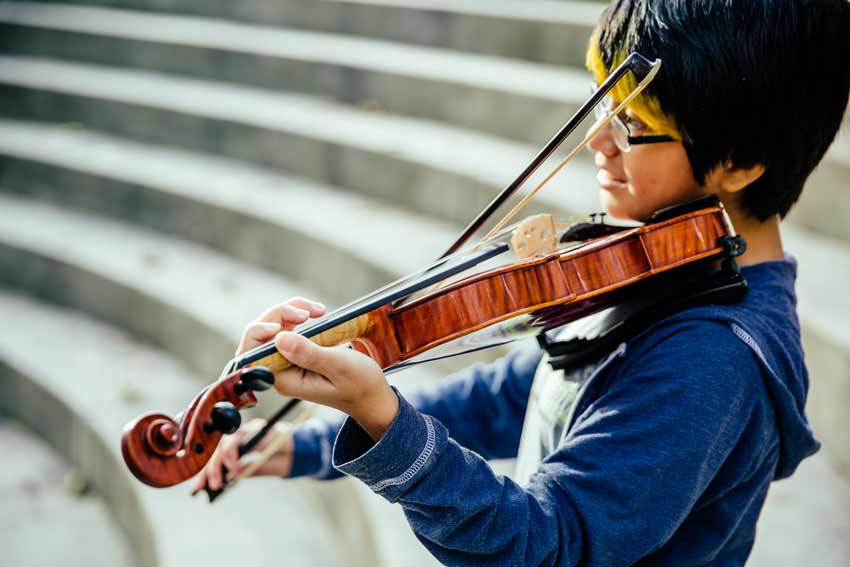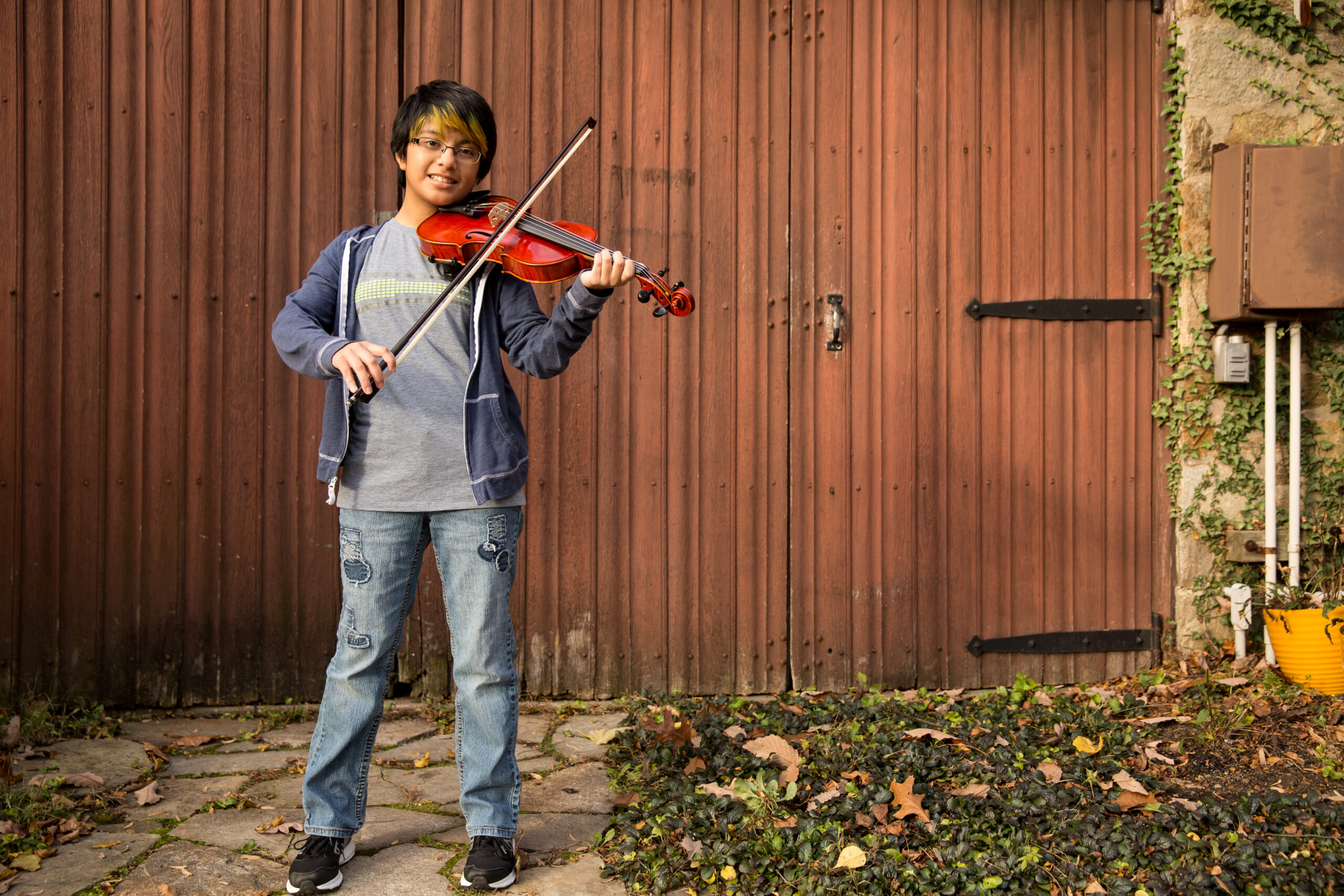August 01, 2015
Viola: Renting vs. Purchasing for Beginners


If you’re the proud parent of a child who is excited about learning to play the viola, you likely have a couple things on your mind. First, you need to secure a high-quality viola for your child to learn on. Next, you need to decide whether renting or purchasing that viola makes sense for you and your child. Some parents opt for renting a viola long-term, some rent for a short period of time before purchasing, and others purchase their child a viola right off the bat. If you’re confused about whether you should rent or buy your child’s first viola, this guide can help you make the best decision for everyone involved.
When Does Renting Make Sense?
In general, there are a few situations where renting makes more sense than purchasing. Is your child young and still growing? Are they new to the world of music and uncertain about whether they want to make a long-term commitment to the viola? Does the viola manufacturer or seller offer credits towards future purchases or participate in rent-to-own programs? If you answered “yes” to any of the above, renting a viola probably makes more sense, at least for right now. And, if you have no idea what “rent-to-own programs” even are, we’ll cover that later in the article.
The biggest benefit of renting a viola is that you aren’t financially committing yourself to the instrument. For this reason, renting should be reserved for children who are testing the waters or for those who seem to change their mind easily. If your child was interested in soccer last week, dance the week before that, and debate last month, you should play it safe and rent an instrument until you can evaluate their commitment. Similarly, if your child is still growing, you should rent an instrument until they’re large enough for a full-size viola. If you’re thinking about purchasing a full-size viola in the hopes that your child will grow into it- don’t. This is a huge mistake and can actually lead to physical injuries, hindering their enjoyment of the viola.
When Does Purchasing Make Sense?
As you probably guessed, purchasing makes sense if you answered “no” to the above. If your child has been playing the viola for at least six months and shows an interest in taking their studies further, you can probably upgrade from a rental to a purchase without regretting it later on. Similarly, if your child has stopped growing and is currently renting a full-sized viola, you won’t have to worry about upgrading later and losing your investment. Not only will purchasing a viola save you money over time (more on that later), but purchasing your child a viola is a lesson in responsibility. Being the proud owner of a viola means your child will need to care for the viola regularly, including storing it in the appropriate case, keeping the bow in tip-top shape, and wiping it free of fingerprints after each and every use. If you think buying a viola is the right choice for you, check out your Viola Buyer’s Guide.
Is the Sound Quality Different For Rentals?
Unless you’re a trained musician who has played the viola for years, you likely won’t be able to tell much of a difference in the quality of sound produced by rented and purchased instruments. That is, as long as the viola is rented from a trusted source, such as Music & Arts. If you rent from an untrustworthy source, you run the risk of renting a viola that wasn’t properly cared for by its previous renter. The viola, like many other instruments, is sensitive to changes in humidity and temperature. If proactive measures aren’t taken, such using a humidifier or keeping the instrument out of extreme temperatures, the sound quality can quickly deteriorate. Similar to rented cars and homes, rented violas aren’t always cared for the way they should be. For this reason, some rental violas don’t produce the same sound quality as those that are purchased. To help keep your viola in tip-top shape (and sounding great!), learn How to Choose a Viola Case.
Which is the Cheaper Option?
At the end of the day, renting a viola is really only cheaper in the short-term. Since you don’t have to put down the total cost of the instrument up front, renting is a viable option for families who don’t have a lot of disposable income. Many of these families choose to rent until they have enough saved up to purchase a viola. However, as with most everything else, purchasing a used instrument is the most economic option. Unfortunately, used instruments come with their own set of risks and potential issues. Unless your viola teacher or another seasoned violist is willing to come with you to check out a used viola, your safest bet is saving up until you can purchase one that’s brand new.
Beyond this, the biggest difference between rented and purchased instruments is that when you buy an instrument, you always have the option to sell if you want to recoup your investment. If you properly care for and maintain your viola, it won’t lose much of its value over time. In fact, depending on the make and model, some violas may even increase in price over time. Each and every year, there are new parents just like you who are searching for a good deal on a viola. You can always sell to them and break even.
What’s a Rent-to-Own Program?
Rent-to-own programs are rental programs that are intended to help parents afford an instrument for their child. If you choose to participate in such a program, your monthly rental payments will be put towards the total cost of the instrument. Once the instrument is “paid” in full, the instrument is yours to own. Many rent-to-own programs include maintenance plans and insurance, making them an appealing option for parents of young musicians who may just be starting out. After all, how many times has your child accidentally broken a glass or dish? Imagine them doing the same to their instrument? In addition to insurance and maintenance options, most rent-to-own programs won’t penalize you if your child needs to upgrade to a larger viola- your child will get access to a larger instrument and everything else in the contract will stay the same. If you want to own the instrument before you’ve covered its cost, you can simply apply your rental credit to the total price of the viola and cover the rest out of pocket.
So, you’ve rented or purchased a viola- now what? You’ll need to purchase the appropriate accessories, too. Learn all about Cases, Mutes, and Other Essential Viola Accessories.






